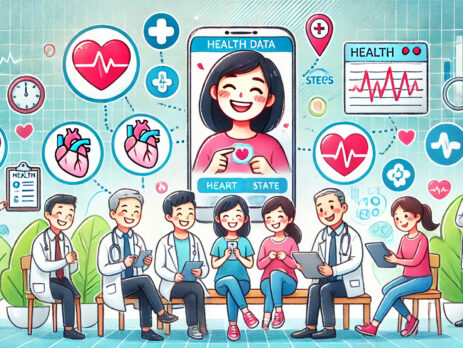This study explores how healthcare professionals (HCPs) view the integration of patient-generated health data from self-management mHealth solutions into clinical care. Interviews with 23 HCPs from Finland, Spain, and Switzerland reveal optimism about the potential of PGHD for monitoring, prevention, research, and enhancing transparency in care. However, concerns about data utility and integration remain barriers to full adoption.
What was the context of the study?
More people are using health apps and devices to track their activity, heart rate, and other health data. This information, called patient-generated health data, could help healthcare professionals monitor patients, especially those with chronic conditions like MS. However, we wanted to know how healthcare professionals feel about using this data in their work.
What did we do?
We interviewed 23 healthcare professionals from Finland, Spain, and Switzerland. These included doctors, nurses, and therapists who treat MS patients. We asked them how patient-generated health data could help improve patient care and what challenges they might face when using it.
What did we find?
Most professionals thought patient-generated health data could help them monitor patients better, identify early warning signs, and improve communication. They liked the idea of using this data to study chronic conditions and make care more personalized. But they were unsure about what types of data would be most useful and how to manage it in their already busy schedules.
Why is this important?
Understanding how healthcare professionals view patient-generated health data can help improve these tools so they are easy to use and truly helpful. This could make healthcare more efficient and allow patients to take a more active role in their care.
Reference
Guardado S, Isomursu M, Giunti G. Health Care Professionals’ Perspectives on the Uses of Patient-Generated Health Data. Stud Health Technol Inform. 2022 May 25;294:750-754. https://doi.org/10.3233/SHTI220577. PMID: 35612197.

